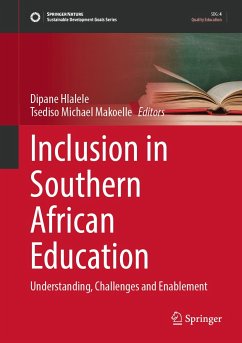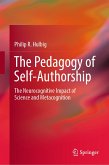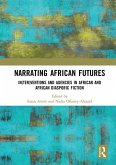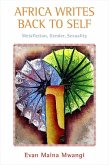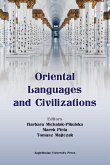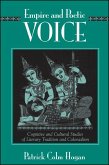Inclusion in Southern African Education (eBook, PDF)
Understanding, Challenges and Enablement
Gebundener Preis 139,09 €**
128,39 €**
**Bis zum 31.03.2025 gebundener Aktionspreis des Verlages
inkl. MwSt. und vom Verlag festgesetzt.

0 °P sammeln
Inclusion in Southern African Education (eBook, PDF)
Understanding, Challenges and Enablement
- Format: PDF
- Merkliste
- Auf die Merkliste
- Bewerten Bewerten
- Teilen
- Produkt teilen
- Produkterinnerung
- Produkterinnerung

Bitte loggen Sie sich zunächst in Ihr Kundenkonto ein oder registrieren Sie sich bei
bücher.de, um das eBook-Abo tolino select nutzen zu können.
Hier können Sie sich einloggen
Hier können Sie sich einloggen
Sie sind bereits eingeloggt. Klicken Sie auf 2. tolino select Abo, um fortzufahren.

Bitte loggen Sie sich zunächst in Ihr Kundenkonto ein oder registrieren Sie sich bei bücher.de, um das eBook-Abo tolino select nutzen zu können.
This book reflects on more than two decades of adoption practices of inclusive education policy in Southern Africa. It is aimed at taking stock of the successes, challenges and achievements during this journey of making education inclusive and equitable. It responds to the educational needs of learners at all levels, regardless of their diverse needs, such as disability, gender, socio-economic status, race, ethnicity and language background.
This book furthers the understanding and conceptualization of the notion of inclusion in education, and explores the challenges experienced during the…mehr
- Geräte: PC
- ohne Kopierschutz
- eBook Hilfe
- Größe: 7.75MB
- Upload möglich
Andere Kunden interessierten sich auch für
![The Pedagogy of Self-Authorship (eBook, PDF) The Pedagogy of Self-Authorship (eBook, PDF)]() Philip R. HulbigThe Pedagogy of Self-Authorship (eBook, PDF)149,79 €
Philip R. HulbigThe Pedagogy of Self-Authorship (eBook, PDF)149,79 €![Narrating African FutureS (eBook, PDF) Narrating African FutureS (eBook, PDF)]() Narrating African FutureS (eBook, PDF)42,95 €
Narrating African FutureS (eBook, PDF)42,95 €![Nadine Gordimer's Burger's Daughter (eBook, PDF) Nadine Gordimer's Burger's Daughter (eBook, PDF)]() Nadine Gordimer's Burger's Daughter (eBook, PDF)20,95 €
Nadine Gordimer's Burger's Daughter (eBook, PDF)20,95 €![Poems from above the Hill (eBook, PDF) Poems from above the Hill (eBook, PDF)]() Ashur EtwebiPoems from above the Hill (eBook, PDF)7,99 €
Ashur EtwebiPoems from above the Hill (eBook, PDF)7,99 €![Africa Writes Back to Self (eBook, PDF) Africa Writes Back to Self (eBook, PDF)]() Evan M. MwangiAfrica Writes Back to Self (eBook, PDF)31,95 €
Evan M. MwangiAfrica Writes Back to Self (eBook, PDF)31,95 €![Oriental Languages and Civilisations (eBook, PDF) Oriental Languages and Civilisations (eBook, PDF)]() Oriental Languages and Civilisations (eBook, PDF)46,95 €
Oriental Languages and Civilisations (eBook, PDF)46,95 €![Empire and Poetic Voice (eBook, PDF) Empire and Poetic Voice (eBook, PDF)]() Patrick Colm HoganEmpire and Poetic Voice (eBook, PDF)29,95 €
Patrick Colm HoganEmpire and Poetic Voice (eBook, PDF)29,95 €-
-
-
This book reflects on more than two decades of adoption practices of inclusive education policy in Southern Africa. It is aimed at taking stock of the successes, challenges and achievements during this journey of making education inclusive and equitable. It responds to the educational needs of learners at all levels, regardless of their diverse needs, such as disability, gender, socio-economic status, race, ethnicity and language background.
This book furthers the understanding and conceptualization of the notion of inclusion in education, and explores the challenges experienced during the operationalization and implementation of the process. It extends debates spawned by international and national policy mandates that sought to transcend exclusionary educational practices in order to realize inclusive societies and, by implication, inclusive classrooms.
It offers a comprehensive conceptual framework for inclusive education in the Southern African context while drawing parallels from the regional and international experience. This book can be used as a reference or critical reading for scholars and researchers in the field of inclusive education. It will empower practitioners, administrators, teachers and school leaders, curriculum developers and planners, as well as policy makers with knowledge about theory and practice regarding inclusive education in the Southern African schooling system.
This book furthers the understanding and conceptualization of the notion of inclusion in education, and explores the challenges experienced during the operationalization and implementation of the process. It extends debates spawned by international and national policy mandates that sought to transcend exclusionary educational practices in order to realize inclusive societies and, by implication, inclusive classrooms.
It offers a comprehensive conceptual framework for inclusive education in the Southern African context while drawing parallels from the regional and international experience. This book can be used as a reference or critical reading for scholars and researchers in the field of inclusive education. It will empower practitioners, administrators, teachers and school leaders, curriculum developers and planners, as well as policy makers with knowledge about theory and practice regarding inclusive education in the Southern African schooling system.
Produktdetails
- Produktdetails
- Verlag: Springer International Publishing
- Erscheinungstermin: 18. Oktober 2023
- Englisch
- ISBN-13: 9783031437526
- Artikelnr.: 69175993
- Verlag: Springer International Publishing
- Erscheinungstermin: 18. Oktober 2023
- Englisch
- ISBN-13: 9783031437526
- Artikelnr.: 69175993
- Herstellerkennzeichnung Die Herstellerinformationen sind derzeit nicht verfügbar.
Dipane Hlalele is a Professor in the School of Education at the University of KwaZulu-Natal in South Africa and has extensive experience in teaching inclusive education at higher education institutions. In addition to supervising postgraduate research students and postdoctoral fellows in the field of inclusive education, he also examines a number of masters and doctoral candidates from other universities. A number of his students are lecturers in the field of inclusive education at their respective institutions as well as specialists in their own countries. He was a national team member in the development of inclusive teaching standards for beginner teachers and a consultant on infusion of inclusion in Mauritian teacher education.
Tsediso Michael Makoelle is one of the recipients of the prestigious Nelson Mandela scholarship to the United Kingdom (UK). He holds the degrees of Doctor of Philosophy (PhD) in Inclusive Education from the University of Manchester, UK and a Doctor of Education (D Ed) in Education Management and Leadership from the University of South Africa (UNISA). He has been working at Nazarbayev University in Kazakhstan for nearly eight years in the capacities of associate professor, full professor and Director of Doctoral Studies, General Director for Research and lately the Vice Dean for Research at the Graduate School of Education.
Tsediso Michael Makoelle is one of the recipients of the prestigious Nelson Mandela scholarship to the United Kingdom (UK). He holds the degrees of Doctor of Philosophy (PhD) in Inclusive Education from the University of Manchester, UK and a Doctor of Education (D Ed) in Education Management and Leadership from the University of South Africa (UNISA). He has been working at Nazarbayev University in Kazakhstan for nearly eight years in the capacities of associate professor, full professor and Director of Doctoral Studies, General Director for Research and lately the Vice Dean for Research at the Graduate School of Education.
Section A: Understanding inclusion in education.- Chapter one: Exclusion, diversity and inclusion. Dipane Hlalele.- Chapter two: Inclusion in teaching and learning: implications for pedagogy and practice. Tsediso Michael Makoelle.- Chapter three: Inclusion in early childhood education: A sense-making perspective. Awudu Salaam Mohammed & Dipane Hlalele.- Chapter four: Inclusive learning environments in early childhood care and education. Ashnie Mahadew & Dipane Hlalele.- Chapter five: Inclusion in Zimbabwe: Conversations from teachers in rural schools. Munyaradzi Chidarikire & Dipane Hlalele.- Chapter six: Inclusion in adult education: understandings and perspectives in South African context. Nthabiseng Ngwenya & Tsediso Michael Makoelle.- Chapter seven: Infusion of inclusion in Mauritian initial teacher education. Seema Goburdhun & Dipane Hlalele.- Section B: Challenges of inclusion in education.- Chapter eight: Leadership for inclusion in South African rural schools. Phumlani Erasmus Myende.- Chapter nine: Curriculum adaptation for inclusive teaching and learning. Cedric Mpungose.-Chapter ten: Enabling structures of inclusion: A South African schooling perspective. Macalane Malindi & Tsediso Michael Makoelle.- Chapter eleven: Full-service Schools and inclusion in South Africa. Gladys Ayaya & Tsediso Michael Makoelle.- Chapter twelve: Teacher preparation for inclusion: Lessons from the South African education context. Thabo Makhalemele & Tsediso Michael Makoelle.- Chapter thirteen: The plight of students with disabilities in teacher education colleges in Zimbabwe. Ncube Nozinhle & Dube Bekithemba.- Section C: Enablement of inclusion in education.- Chapter fourteen: Inclusive education policy as an enabler: Lessons from South Africa. Llyod Tlale.- Chapter fifteen: Teachers as enablers of inclusive teaching and learning. Dipane Hlalele.- Chapter sixteen: Learner support as enablement of inclusion in education.Thabo Makhalemele & Macalane Junel Malindi.- Chapter seventeen: Non-governmental and community-based organizations as enablers of inclusion in education. Paseka Mosia & Niko Lephoto.-Chapter eighteen: Supporting teachers for inclusion: selected cases in South African schools. Macalane Junel Malindi, Thabo Makhalemele & Shabe Jonas Matla.
Section A: Understanding inclusion in education.- Chapter one: Exclusion, diversity and inclusion. Dipane Hlalele.- Chapter two: Inclusion in teaching and learning: implications for pedagogy and practice. Tsediso Michael Makoelle.- Chapter three: Inclusion in early childhood education: A sense-making perspective. Awudu Salaam Mohammed & Dipane Hlalele.- Chapter four: Inclusive learning environments in early childhood care and education. Ashnie Mahadew & Dipane Hlalele.- Chapter five: Inclusion in Zimbabwe: Conversations from teachers in rural schools. Munyaradzi Chidarikire & Dipane Hlalele.- Chapter six: Inclusion in adult education: understandings and perspectives in South African context. Nthabiseng Ngwenya & Tsediso Michael Makoelle.- Chapter seven: Infusion of inclusion in Mauritian initial teacher education. Seema Goburdhun & Dipane Hlalele.- Section B: Challenges of inclusion in education.- Chapter eight: Leadership for inclusion in South African rural schools. Phumlani Erasmus Myende.- Chapter nine: Curriculum adaptation for inclusive teaching and learning. Cedric Mpungose.-Chapter ten: Enabling structures of inclusion: A South African schooling perspective. Macalane Malindi & Tsediso Michael Makoelle.- Chapter eleven: Full-service Schools and inclusion in South Africa. Gladys Ayaya & Tsediso Michael Makoelle.- Chapter twelve: Teacher preparation for inclusion: Lessons from the South African education context. Thabo Makhalemele & Tsediso Michael Makoelle.- Chapter thirteen: The plight of students with disabilities in teacher education colleges in Zimbabwe. Ncube Nozinhle & Dube Bekithemba.- Section C: Enablement of inclusion in education.- Chapter fourteen: Inclusive education policy as an enabler: Lessons from South Africa. Llyod Tlale.- Chapter fifteen: Teachers as enablers of inclusive teaching and learning. Dipane Hlalele.- Chapter sixteen: Learner support as enablement of inclusion in education.Thabo Makhalemele & Macalane Junel Malindi.- Chapter seventeen: Non-governmental and community-based organizations as enablers of inclusion in education. Paseka Mosia & Niko Lephoto.-Chapter eighteen: Supporting teachers for inclusion: selected cases in South African schools. Macalane Junel Malindi, Thabo Makhalemele & Shabe Jonas Matla.
Section A: Understanding inclusion in education.- Chapter one: Exclusion, diversity and inclusion. Dipane Hlalele.- Chapter two: Inclusion in teaching and learning: implications for pedagogy and practice. Tsediso Michael Makoelle.- Chapter three: Inclusion in early childhood education: A sense-making perspective. Awudu Salaam Mohammed & Dipane Hlalele.- Chapter four: Inclusive learning environments in early childhood care and education. Ashnie Mahadew & Dipane Hlalele.- Chapter five: Inclusion in Zimbabwe: Conversations from teachers in rural schools. Munyaradzi Chidarikire & Dipane Hlalele.- Chapter six: Inclusion in adult education: understandings and perspectives in South African context. Nthabiseng Ngwenya & Tsediso Michael Makoelle.- Chapter seven: Infusion of inclusion in Mauritian initial teacher education. Seema Goburdhun & Dipane Hlalele.- Section B: Challenges of inclusion in education.- Chapter eight: Leadership for inclusion in South African rural schools. Phumlani Erasmus Myende.- Chapter nine: Curriculum adaptation for inclusive teaching and learning. Cedric Mpungose.-Chapter ten: Enabling structures of inclusion: A South African schooling perspective. Macalane Malindi & Tsediso Michael Makoelle.- Chapter eleven: Full-service Schools and inclusion in South Africa. Gladys Ayaya & Tsediso Michael Makoelle.- Chapter twelve: Teacher preparation for inclusion: Lessons from the South African education context. Thabo Makhalemele & Tsediso Michael Makoelle.- Chapter thirteen: The plight of students with disabilities in teacher education colleges in Zimbabwe. Ncube Nozinhle & Dube Bekithemba.- Section C: Enablement of inclusion in education.- Chapter fourteen: Inclusive education policy as an enabler: Lessons from South Africa. Llyod Tlale.- Chapter fifteen: Teachers as enablers of inclusive teaching and learning. Dipane Hlalele.- Chapter sixteen: Learner support as enablement of inclusion in education.Thabo Makhalemele & Macalane Junel Malindi.- Chapter seventeen: Non-governmental and community-based organizations as enablers of inclusion in education. Paseka Mosia & Niko Lephoto.-Chapter eighteen: Supporting teachers for inclusion: selected cases in South African schools. Macalane Junel Malindi, Thabo Makhalemele & Shabe Jonas Matla.
Section A: Understanding inclusion in education.- Chapter one: Exclusion, diversity and inclusion. Dipane Hlalele.- Chapter two: Inclusion in teaching and learning: implications for pedagogy and practice. Tsediso Michael Makoelle.- Chapter three: Inclusion in early childhood education: A sense-making perspective. Awudu Salaam Mohammed & Dipane Hlalele.- Chapter four: Inclusive learning environments in early childhood care and education. Ashnie Mahadew & Dipane Hlalele.- Chapter five: Inclusion in Zimbabwe: Conversations from teachers in rural schools. Munyaradzi Chidarikire & Dipane Hlalele.- Chapter six: Inclusion in adult education: understandings and perspectives in South African context. Nthabiseng Ngwenya & Tsediso Michael Makoelle.- Chapter seven: Infusion of inclusion in Mauritian initial teacher education. Seema Goburdhun & Dipane Hlalele.- Section B: Challenges of inclusion in education.- Chapter eight: Leadership for inclusion in South African rural schools. Phumlani Erasmus Myende.- Chapter nine: Curriculum adaptation for inclusive teaching and learning. Cedric Mpungose.-Chapter ten: Enabling structures of inclusion: A South African schooling perspective. Macalane Malindi & Tsediso Michael Makoelle.- Chapter eleven: Full-service Schools and inclusion in South Africa. Gladys Ayaya & Tsediso Michael Makoelle.- Chapter twelve: Teacher preparation for inclusion: Lessons from the South African education context. Thabo Makhalemele & Tsediso Michael Makoelle.- Chapter thirteen: The plight of students with disabilities in teacher education colleges in Zimbabwe. Ncube Nozinhle & Dube Bekithemba.- Section C: Enablement of inclusion in education.- Chapter fourteen: Inclusive education policy as an enabler: Lessons from South Africa. Llyod Tlale.- Chapter fifteen: Teachers as enablers of inclusive teaching and learning. Dipane Hlalele.- Chapter sixteen: Learner support as enablement of inclusion in education.Thabo Makhalemele & Macalane Junel Malindi.- Chapter seventeen: Non-governmental and community-based organizations as enablers of inclusion in education. Paseka Mosia & Niko Lephoto.-Chapter eighteen: Supporting teachers for inclusion: selected cases in South African schools. Macalane Junel Malindi, Thabo Makhalemele & Shabe Jonas Matla.
